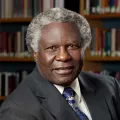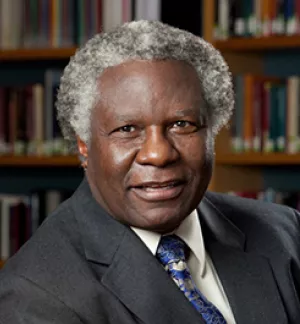Historian Eric Hobsbawm (1917–2012), who passed away this week, will be remembered by many for his lasting commitment to what may appear as outmoded Marxism.
Hobsbawm was faulted by many for his humanism that continued to guide his thinking throughout his life. As Yale University’s Timothy Snyder points out: “There is something to be said, after all, for defending the weak, even today, especially today.”
One of his least acknowledged legacies was his insightful understanding of the role of invention in history. On a grander scheme he documented major revolutions as social inventions that shaped the European ages of revolution, capital, empire, and extremes.
Buried in these monumental works is a deep understanding of the tensions between invention and the prevailing social order. These tensions dominate every contemporary technological debate—from nuclear power to genetically modified crops to smart grid.
In his effort to clarify the response of workers to new technologies, Hobsbawm helped to lay the foundations for a less partisan understanding of resistance to innovation. His classic 1952 paper, “The Machine Breakers,” helped to demystify the popular notion that Luddites were rioters who were simply opposed to technological innovation.
By drawing a clear distinction between simple opposition to machinery and “collective bargaining by riots,” Hobsbawm helped to change the way employers view their workers. His pioneering work would later inspire a new line of scholarship that has significantly enriched innovation policy.
More importantly, this classification helped move society away from the glib interpretation of resistance to innovation as an irrational activity that will either pass with time or can be cured with improved science education.
Hobsbawm’s work inspired interest in deeper socio-economic concerns that influence the way society receives and manages new technologies. This work was later elaborated in E.P. Thompson’s The Making of the English Working Class, where he involves social empathy by reminding us that “in some of the lost causes in the people of the Industrial Revolution we may discover insights into social evils which we have yet to cure.”
By focusing on the social content of economic transformation, Hobsbawm presaged much of what has inspired the Arab Spring, Occupy movements, and many other protests around the world. The common element in these movements is an overarching desire to bring social responsibility into the way society deploys technological advancement in the economy.
This view has over time changed the way governments around the world approach the introduction of new technologies. There is more concern and interest in public engagement over the impact of new technologies. With this have also come more sophisticated approaches to understanding technological risks. The Marxian framing that Hobsbawm used has given way to greater policy appreciation of the co-evolution between technology and society.
As a student of invention, Hobsbawm helped to enrich our understanding of the interactions between creativity and culture. His co-edited volume (with Terence Ranger), The Invention of Tradition, helped to resolve the most persistent debates on the impact of creativity on tradition.
Those seeking to maintain the status quo have tended to juxtapose tradition with change. In innovation policy discourse, new technologies are of often presented as a threat to the established order and its antique value. Nowhere is this debate more vividly articulated as in the clash between organic farming and the use of modern biotechnology.
Hobsbawm demolishes the mythologies around tradition by pointing to their inventive content. He points out traditions that are “invented, constructed and formally instituted and those emerging in less easily traceable manner within a brief and dateable period.”
This formulation takes away the hubris of cultural determinism that is often put in the way of innovation by supporters of incumbent orders. By focusing policy attention on the invention of traditions, policymakers are in a better position to acknowledge societal dynamism. But more importantly, it helps to view culture as a collective expression of the human dynamism.
In Hobsbawm’s view, society takes on an evolutionary dimension and constant renewal. Today’s rapid technological advancements and their integration into society reveal on a daily basis the extent to which new traditions are being born. A new subculture is growing around mobile technologies in ways that could not have been anticipated only a decade ago. Policymakers are playing catch-up as they seek to manage the co-evolution between technology and societal values.
Eric Hobsbawm framed his work in the context of revolution in the grand format bequeathed to scholars by Marx. But he added his own unique insights that have over time helped to redefine revolutions—whether political or technological—as inventions that create new traditions. Nowhere is this approach so vivid as in our effort to improve our understanding of the impact of technology on society and the formulation of appropriate innovation policies.
Juma, Calestous. “History as Innovation: The Intellectual Legacy of Eric Hobsbawm.” October 1, 2012




